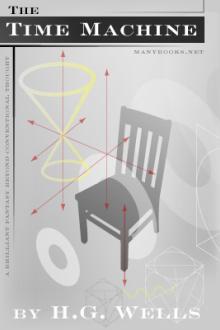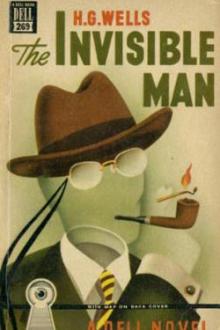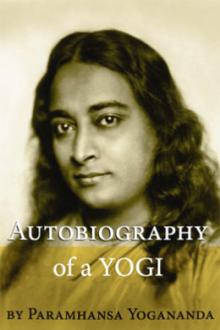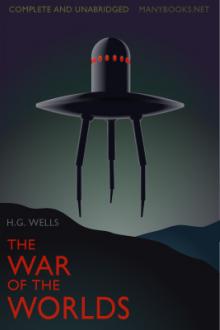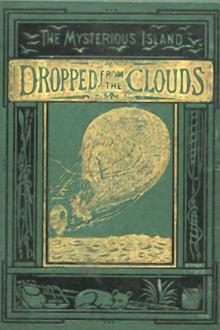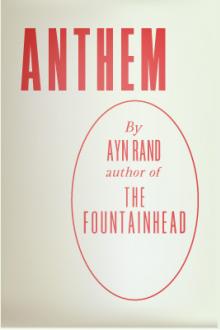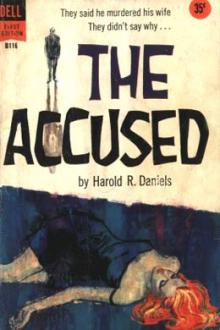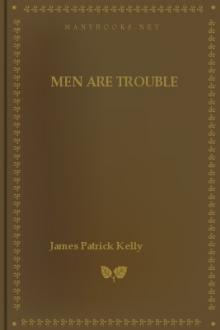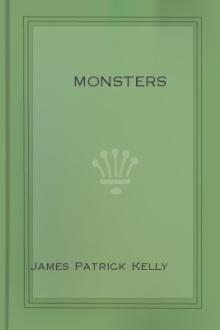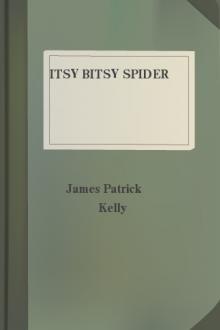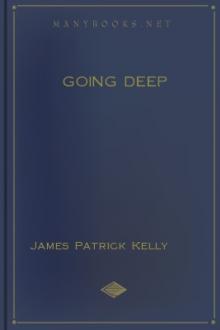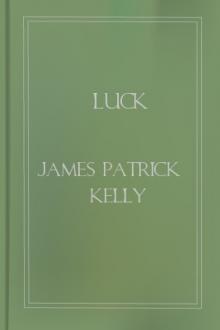Burn
Burn
Simplicity ain't what it used to be. The tiny planet of Morobe's Pea has been sold, and the new owner has a few ideas. He has renamed it Walden, and voluntary simplicity is now the rule. It will become a rural paradise for everyone who embraces Thoreau’s philosophy. But the previous tenants have their own ideas. And they are willing to set themselves on fire to defend them...
Book Excerpt
To keep from brooding about Vic and the Motu burn and the firefight, Spur looked up friends who had fallen out of his life. He surprised his cousin Land, who was living in Slide Knot in Southeast and working as a tithe assessor. He connected with his childhood friend Handy, whom he hadn't seen since the Alcazars had moved to Freeport, where Handy's mom was going to teach pastoral philosophy. She was still at the university and Handy was an electrician. He tracked down his self-reliance school sweetheart, Leaf Benkleman, only to discover that she had emigrated from Walden to Kolo in the Alumar system. Their attempt to catch up was frustrating, however, because the Cooperative's censors seemed to buzz every fifth word Leaf said. Also, the look on her face whenever he spoke rattled Spur. Was it pity? He was actually relieved when she cut their conversation short.
Despite the censors, talking to Leaf whetted Spur's appetite for making contact with the upside. He certainly wouldn't get the chance once he
Editor's choice
(view all)Popular books in Science Fiction, Post-1930, Creative Commons
Readers reviews
4.4
LoginSign up
I enjoyed this story very much. Then after I read it and published the first draft of this review I discovered that this story has nailed both the Hugo and the Nebula. That's no small thing.
In Burn we get a glimpse of far-future humankind, with tech that borders on magic, but there's also a little mysticism. Or at least luck. That future is merely a backdrop, however; the actual conflicts, the personal and the political, are very human, and told from the point of view of Spur, someone we can understand. His acestors decided to abandon the tech and go back to a simpler life. While Spur knows that the "upside" exists and is filled with tech marvels, he also knows that that technology at some point must undermine the humanity of those who wield it.
Of course he knows that; he's been taught that his entire life.
Spur is given a chance to reach out to the universe. It is a guilty pleasure, an idle conceit as he recovers from injury, one he knows his friends will not approve of. He pokes at the universe, almost randomly. But then the universe answers back. The fuckin' universe answers back. Luck, it's just luck. The event that triggers this story (or the part of the story we see here), is one of near-fantastic luck. It would be difficult to swallow, except, well, luck is a real thing.
James Patrick Kelly does an admirable job of avoiding judgement; there is no absolute "right" and "wrong". While characters make judgements, the author does well to not color the debate with his own leanings. One person says "terrorist", another says "martyr." "Us" and "them" gets tangled. And there are subtle elements, as well. Spur is married, but the marriage is on the rocks. There are the usual reasons, but perhaps he was in love with someone else all along.
One quibble: if pukpuk had been capitalized like most organizations of humans are, I would have parsed the opening sequence (which is pretty hectic) more cleanly.
Like all human conflicts, not everything is wrapped up in a neat package at the end of this story. The immediate conflict is resolved in a satisfying way, and the final choice Spur makes rings true. There are still large questions outstanding, about the future of the planet and the clever indigenous species. But Spur has had a taste of what the upside has to offer, and in the end this story is about him, and the choice he must make.
In Burn we get a glimpse of far-future humankind, with tech that borders on magic, but there's also a little mysticism. Or at least luck. That future is merely a backdrop, however; the actual conflicts, the personal and the political, are very human, and told from the point of view of Spur, someone we can understand. His acestors decided to abandon the tech and go back to a simpler life. While Spur knows that the "upside" exists and is filled with tech marvels, he also knows that that technology at some point must undermine the humanity of those who wield it.
Of course he knows that; he's been taught that his entire life.
Spur is given a chance to reach out to the universe. It is a guilty pleasure, an idle conceit as he recovers from injury, one he knows his friends will not approve of. He pokes at the universe, almost randomly. But then the universe answers back. The fuckin' universe answers back. Luck, it's just luck. The event that triggers this story (or the part of the story we see here), is one of near-fantastic luck. It would be difficult to swallow, except, well, luck is a real thing.
James Patrick Kelly does an admirable job of avoiding judgement; there is no absolute "right" and "wrong". While characters make judgements, the author does well to not color the debate with his own leanings. One person says "terrorist", another says "martyr." "Us" and "them" gets tangled. And there are subtle elements, as well. Spur is married, but the marriage is on the rocks. There are the usual reasons, but perhaps he was in love with someone else all along.
One quibble: if pukpuk had been capitalized like most organizations of humans are, I would have parsed the opening sequence (which is pretty hectic) more cleanly.
Like all human conflicts, not everything is wrapped up in a neat package at the end of this story. The immediate conflict is resolved in a satisfying way, and the final choice Spur makes rings true. There are still large questions outstanding, about the future of the planet and the clever indigenous species. But Spur has had a taste of what the upside has to offer, and in the end this story is about him, and the choice he must make.
- Upvote (0)
- Downvote (0)
This is a very good read; very well crafted.
The setting is Walden, a planet taken over by minimalist agrarian oriented colonists. They wrested the planet from the Pukpuks, who were technologically oriented, and basically raped the planet of natural resources. The Pukpuls are now waging a guerilla war against the Waldenites. The Waldenites are reforesting the planet and the Pukpuks are torching the forests, sometimes dying in the process by becoming "torches", using their own bodies to start fires. To confuse matters, some Waldenites support the PukPuks.
Our protaganist is Spur, a Gary Cooper of quiet guy who is a volunteer firefighter from a small village. He has been severely burned trying to save his brother-in-law who was evidently a "torch" working for the Pukpuks. He has nightmares about his brother-in-law. How does he tell his wife after promising to protect him. Firefighting seems to be a losing battle, his wife is divorcing him, and he really is confused, not really understanding the momentous events going on around him or how to respond.
To help healing, he contacts the "upsiders" who are very strange technologically sophisticated off planet humans inhabiting a large number of settled worlds. They provide a robot doctor bot to heal him and come to Walden to check out what is going on. Big doings for the simple farmer Waldenites who have proscribed most technology in their simple lives.
The middle of the story seems slow, taken up with character development, at first seeming like a soap opera, but designed for the reader to get to know the characters well. And you will get to liking and identifying with them.
A fire ensues, threatening his village, Spur tries to control it, doubting his abilities, but using his training until help arrives.
During the chaotic fire and the firefighting, secret agendas are revealed involving the the off planet upsiders, Spur's wife and the Pukpuks which lead to a very interesting and surprising ending.
The setting is Walden, a planet taken over by minimalist agrarian oriented colonists. They wrested the planet from the Pukpuks, who were technologically oriented, and basically raped the planet of natural resources. The Pukpuls are now waging a guerilla war against the Waldenites. The Waldenites are reforesting the planet and the Pukpuks are torching the forests, sometimes dying in the process by becoming "torches", using their own bodies to start fires. To confuse matters, some Waldenites support the PukPuks.
Our protaganist is Spur, a Gary Cooper of quiet guy who is a volunteer firefighter from a small village. He has been severely burned trying to save his brother-in-law who was evidently a "torch" working for the Pukpuks. He has nightmares about his brother-in-law. How does he tell his wife after promising to protect him. Firefighting seems to be a losing battle, his wife is divorcing him, and he really is confused, not really understanding the momentous events going on around him or how to respond.
To help healing, he contacts the "upsiders" who are very strange technologically sophisticated off planet humans inhabiting a large number of settled worlds. They provide a robot doctor bot to heal him and come to Walden to check out what is going on. Big doings for the simple farmer Waldenites who have proscribed most technology in their simple lives.
The middle of the story seems slow, taken up with character development, at first seeming like a soap opera, but designed for the reader to get to know the characters well. And you will get to liking and identifying with them.
A fire ensues, threatening his village, Spur tries to control it, doubting his abilities, but using his training until help arrives.
During the chaotic fire and the firefighting, secret agendas are revealed involving the the off planet upsiders, Spur's wife and the Pukpuks which lead to a very interesting and surprising ending.
07/31/2009
Well told story -- I could have explored the society much longer than the book allowed for...
10/05/2008
Overall a well told story -- some of the descriptions of the firefighting at the end were a little longer than they needed to be, but I liked the characterizations and the Walden-inspired world Kelly describes.
06/17/2006
Good read.
06/17/2006
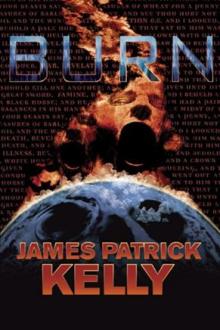
 Free Download
Free Download













